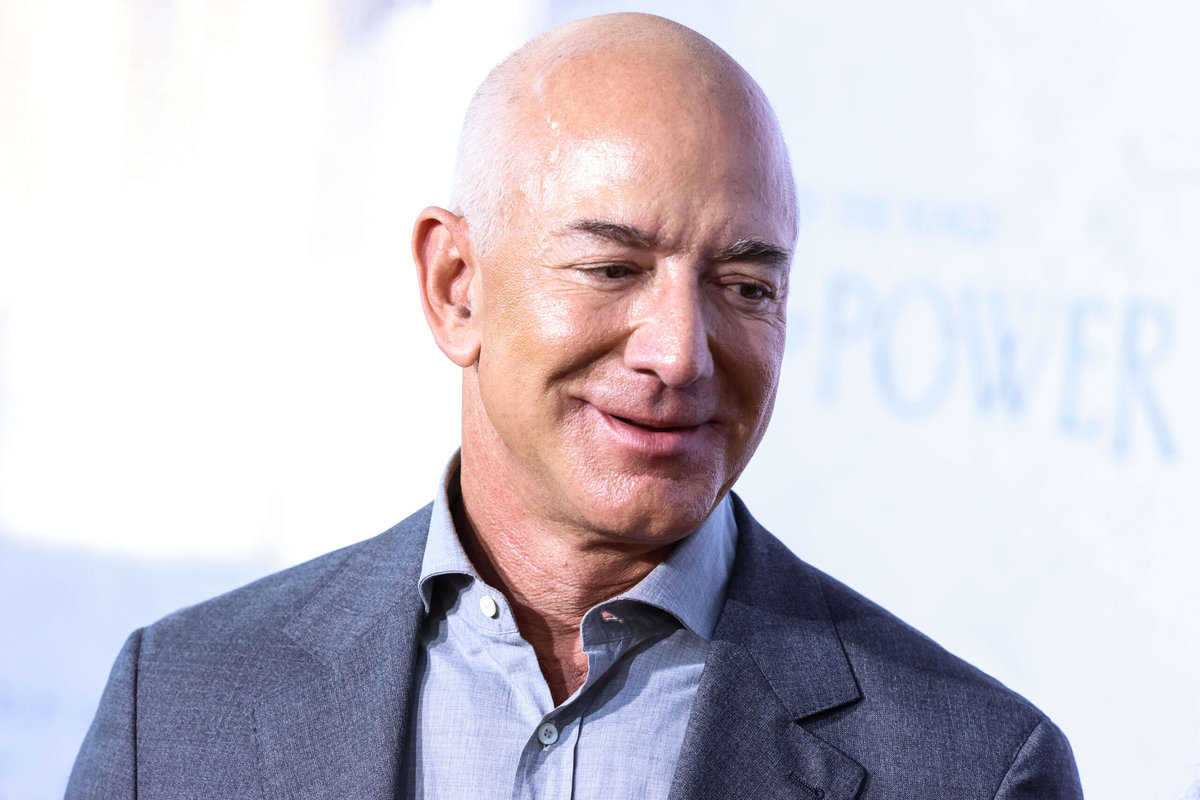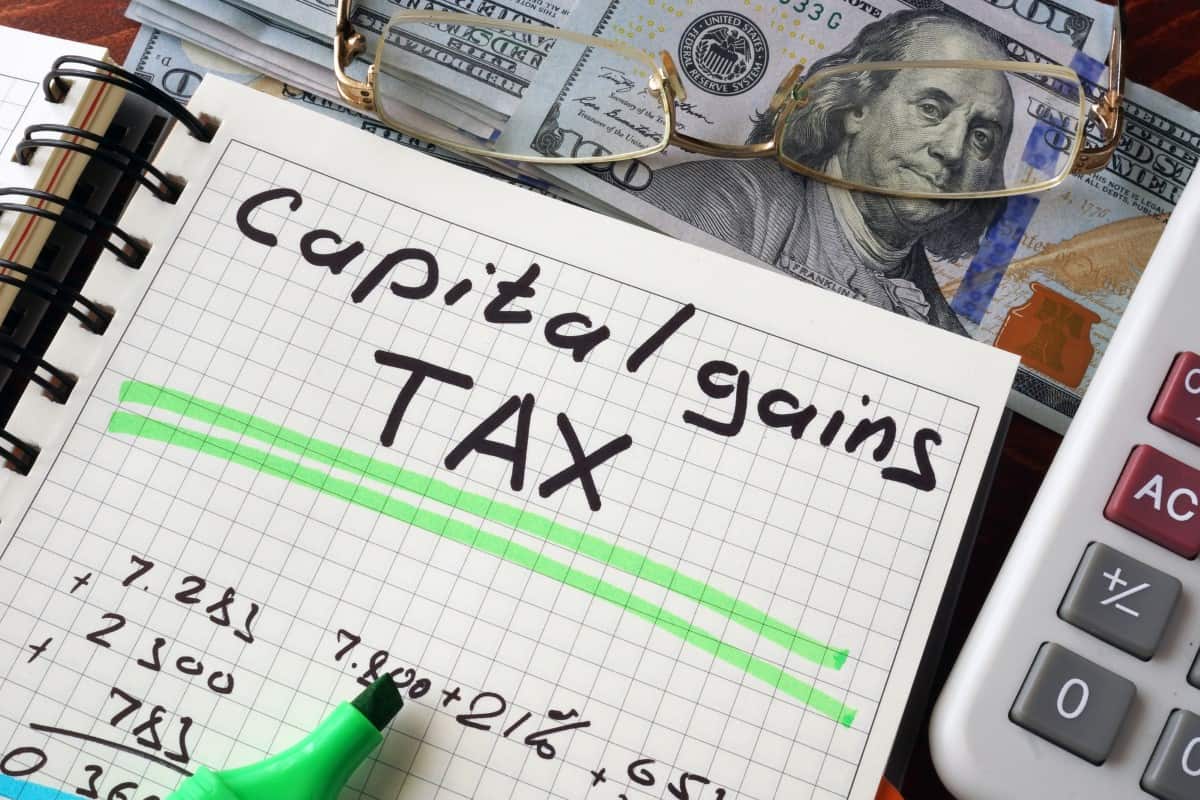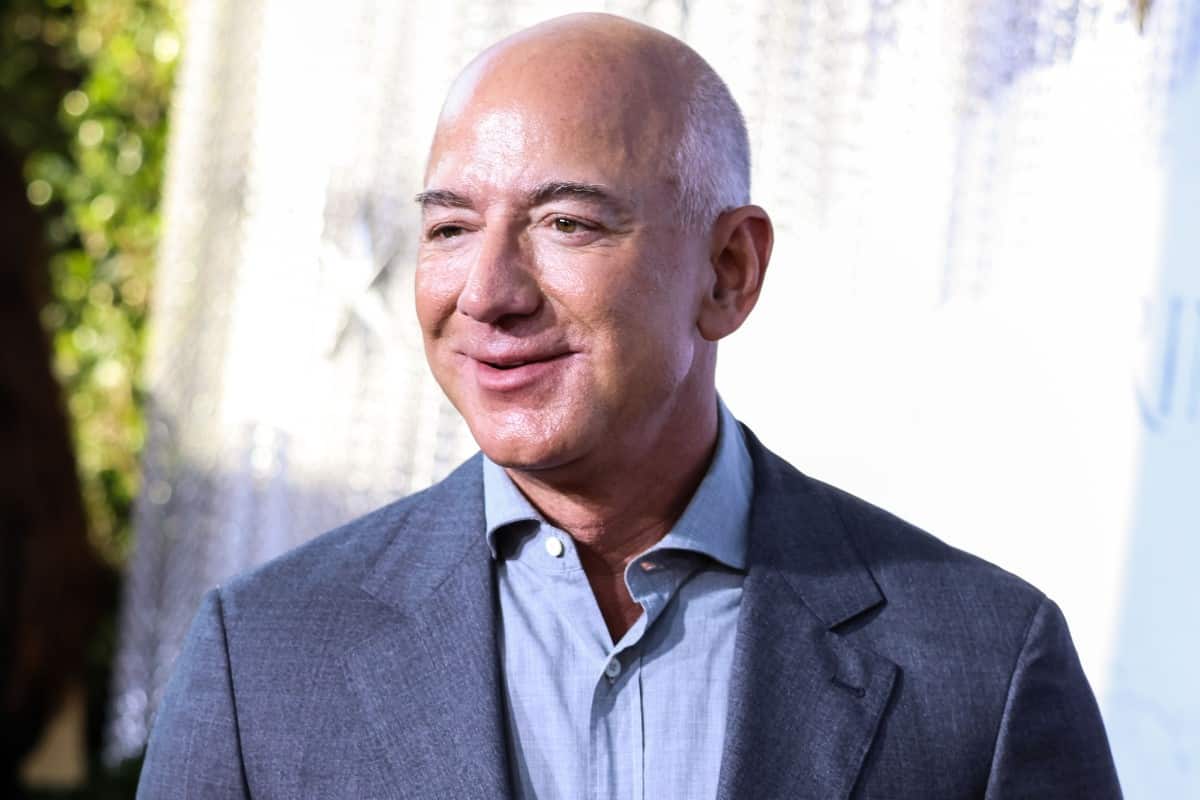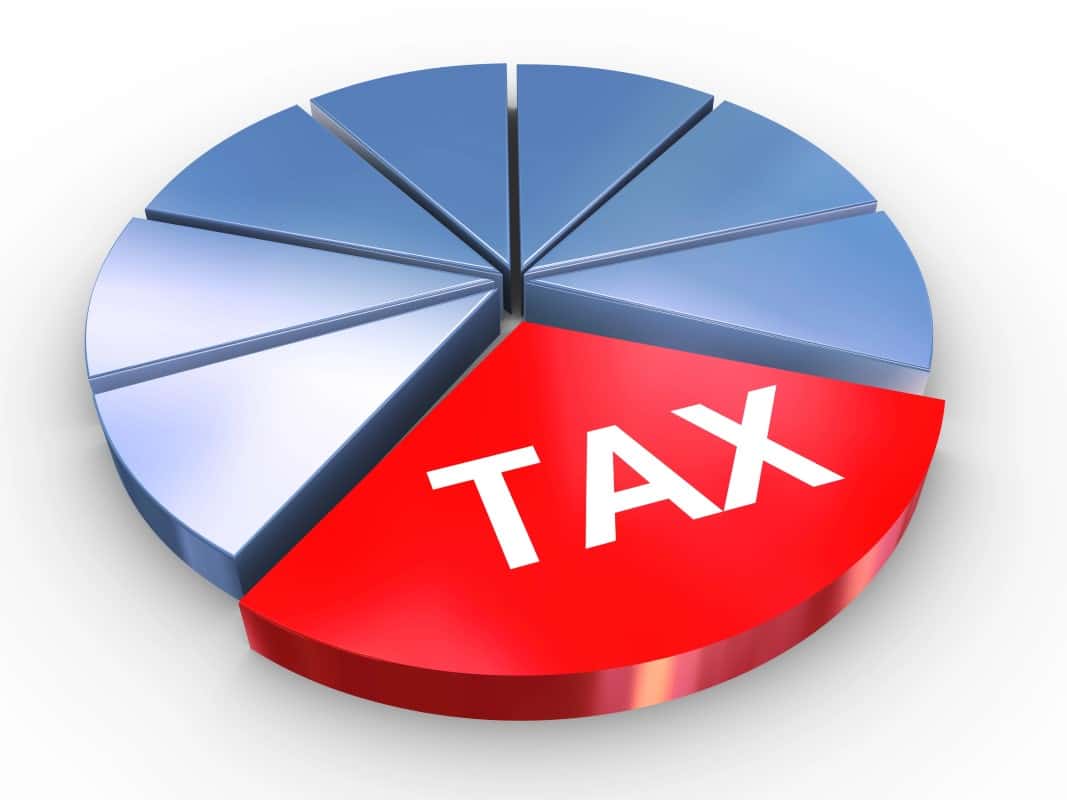Jeff Bezos’ Move Sparks Intense Debate Over Tax Policies

Amazon founder Jeff Bezos’s sudden relocation from Seattle to Miami has fueled intense speculation over his motives and the potential repercussions for Washington State’s economy and tax landscape.
Capital Gains Taxes

While Bezos, valued at a staggering $162 billion, cited his affection for Miami and the pull of family ties as the primary reasons for his move, the absence of any mention regarding taxes stirred speculation.
Several recent changes have occurred in the tax landscape. In Washington, where Bezos was previously based, the Washington State Supreme Court upheld a 7% tax on capital gains above $250,000 earlier this year.
Passed by the 2021 Washington State Legislature, the Douglas County Superior Court ruled in March 2022 that the capital gains excise tax was unconstitutional and invalid. Washington State appealed the ruling, and with all legal challenges now settled, a 7% tax on any long-term capital gain in excess of $250,000 in a calendar year will be imposed.
Bezos has been selling his Amazon stock investments annually to fund Blue Origin, his space company. According to news reports, he sold about $15.7 billion worth of Amazon stock between 2020 and 2021. Given the passage of the capital gains tax, he would face a substantial tax hit due to the sale of his Amazon stock. Florida’s lack of a capital gains tax could provide significant tax savings.
Estate Taxes

Besides escaping the newly imposed capital gains tax, we must also consider that Washington’s estate tax on estates above $2.19 million reaches up to 20%. Florida boasts no estate tax.
Billionaire Taxes

These are not the only taxes Bezos has to contend with. Democrats in Washington state have led several efforts to introduce what is popularly known as a billionaire tax. As per the proposed tax, individuals who reside in Washington would be subject to a wealth tax equal to 1% of their taxable worldwide wealth over $250 million. The tax would be computed based on the fair market value of an individual’s financial intangible assets, including cash, stocks, bonds, annuities, commodities, treasury bills, and certificates of interest in gold and other precious metals.
After implementation, the state’s economists projected that the wealth tax would raise over $3 billion a year. Based on Bezos’s net worth, he would have been on the hook for an annual tax of over $1.4 billion.
“We strongly support the equitable wealth tax proposed in Senate Bill 5486, and that’s because the proposal would be a boon for Washington’s economy, strengthening community structures like schools and affordable housing, creating thousands of jobs, boosting personal income, and making Washington more attractive for business investment,” said Andy Nicholas, senior fellow at the Washington State Budget and Policy Center.
The proposal to impose a new 1% wealth tax on billionaires failed to pass, but Democrats have vowed to continue trying to garner support for the bill. “Extreme wealth is measured in stocks and bonds and other intangible property that generates large sums of value for whoever possesses it, regardless of whether the wealth holder continues working or not,” said Shaun Scott of the Statewide Poverty Action Network. “We support Senate Bill 5486 and urge Washington lawmakers to do the same.”
Related Article: How To Become a Billionaire
Washington’s Loss Is a Gain for Florida

Florida has been a significant beneficiary in the last few years of the great migration from various states’ losing population.
Amazon is seeking roughly 50,000 sq ft of office space in Miami. The company already has over 400 corporate and technology workers in Miami. It is widely expected that Florida will benefit from additional high-paying jobs created due to Amazon’s move.
Bezos is not the only billionaire bullish on Miami. Hedge fund manager Ken Griffin anticipates Miami overtaking New York City as financial firms migrate south to escape rising crime rates. The lower taxes and climate would be an additional draw.
Paul Singer’s Elliott Management hedge fund also moved its headquarters from Manhattan to West Palm Beach, Florida, in 2020.
Billionaire activist Carl Icahn also ditched New York for the Sunshine State. Although Icahn, who grew up in Queens, highlighted that his move to Florida was to enjoy the warmer climate year around, one can’t help but wonder at the impact of billionaires moving to Florida.
Related Article: California Tops The List of States Losing Population
Controversial Capitals Gains Tax Headed for Repeal?

Critics of Washington’s capital gains tax have put forth a ballot measure (1-2109) to allow state residents to vote on whether to retain or reject the capital gains tax.
A “yes” vote supports repealing the capital gains excise tax imposed on long-term capital assets by individuals with capital gains over $250,000.
Other states are pushing ahead with their own versions of “wealth tax” proposals.
Massachusetts Imposing “Millionaire Tax”

Due to a change in the state constitution approved by voters, Massachusetts has a “millionaire tax.” Residents of the state with taxable incomes exceeding one million dollars must pay an additional 4% income tax to the Commonwealth.
Hawaii Considering Wealth Asset Tax

Hawaii’s proposed Wealth Asset Tax would apply to taxpayers with over $20 million in assets in the state. The proposed tax would be 1% of net worth per year.
California’s Wealth Tax Proposal

California’s latest wealth tax proposal would impose a 1% tax on the wealthiest Californians (those with a net worth of $50 million or more). Additionally, billionaires in California would face a 1.5% tax.
Illinois Proposing Wealth Tax

Illinois lawmakers have proposed a wealth tax where asset gains would be recognized annually as income and subject to a flat rate tax of 4.95%. If adopted, the wealth tax proposal could generate about $510 million in revenue in its first year.
New York and Connecticut Increasing State Tax Rates

Proposed “wealth tax” bills in New York and Connecticut would focus partly on increasing state tax rates for capital gains and dividend and interest income.
Biden’s Plans for Additional Taxes

The Biden administration has unveiled its $7.3 trillion fiscal year 2025 budget, with President Biden reiterating his proposal from last year to impose higher taxes on billionaires. In his State of the Union address, Biden stressed the importance of increasing taxes on the wealthiest Americans. His budget proposal includes a billionaire tax targeting households with a net worth exceeding $100 million.
In addition to the proposed Billionaire tax, Biden also said “Under my plan, nobody earning less than $400,000 will pay an additional penny in federal taxes.”
Details are unclear if the $400,000 threshold is for families or single earners and if it would be adjusted based on high cost-of-living locations.
American families living in high cost of living locations such as San Francisco, New York, Seattle, Chicago are bracing for higher taxes.
Inflation has pushed more people in the $400,000 tax bracket. Earnings of $333,000 in 2020 would be worth $400,000 in today’s dollar as the country has witnessed the worst inflation in 40 years.
Long-Term Impacts of Various Tax Proposals

Only Bezos knows whether tax considerations factored into his choice to relocate to Florida. Publicly, he has mentioned his desire for proximity to family and managing his Blue Origin ventures. However, it’s intriguing that regardless of the rationales billionaires offer for their relocations, they consistently gravitate toward states with lower taxes. Whether or not tax benefits drove his move, its repercussions for politicians in various states are evident.
“We are here to put billionaires and ultramillionaires on notice that it is time that they pay what they owe and that state legislators are the ones to make them do it,” said Sen. Noel Frame, D-Seattle, who sponsored the Wealth tax bill.
But in a globally connected world where geographic boundaries are meaningless, the citizens might have put the politicians on notice. The risks inherent in constructing tax systems heavily reliant on a small cluster of taxpayers opting to remain rooted in place are now apparent.
Like Financial Freedom Countdown content? Be sure to follow us!
Retirement Is Overrated: 10 Reasons Not To Retire

You might be thinking that retirement sounds excellent – but what if you can’t afford it? What if an unforeseen catastrophe occurs and you need money? The reality is that so many people are retiring later in life because they don’t have enough saved up or can’t afford to take the risk of quitting their job before they know how much money they’ll need each month. Retirees also face many challenges, from loneliness to boredom, but there are ways to combat these problems with the right lifestyle changes. We will discuss why retirement isn’t always as glamorous as it seems and how to avoid these pitfalls by pursuing your goals now!
Retirement Is Overrated: 10 Reasons Not To Retire
Japan and UK Just Fell Into a Recession. Is the US Next?

Two of the largest global economies have officially entered a recession as per the data released last week. Japan experienced an unexpected decline in GDP, attributed to its weakened currency and aging population. Simultaneously, the UK witnessed a contraction in growth for the second consecutive quarter, occurring just months before a crucial election. Economic data released in the U.S. showed rising unemployment. Although the Federal Reserve could cut rates, inflation came in higher than expected effectively causing concern among economist.
Japan and UK Just Fell Into a Recession. Is the US Next?

John Dealbreuin came from a third world country to the US with only $1,000 not knowing anyone; guided by an immigrant dream. In 12 years, he achieved his retirement number.
He started Financial Freedom Countdown to help everyone think differently about their financial challenges and live their best lives. John resides in the San Francisco Bay Area enjoying nature trails and weight training.
Here are his recommended tools
M1 Finance: John compared M1 Finance against Vanguard, Schwab, Fidelity, Wealthfront and Betterment to find the perfect investment platform. He uses it due to zero fees, very low minimums, automated investment with automatic rebalancing. The pre-built asset allocations and fractional shares helps one get started right away.
Personal Capital: This is a free tool John uses to track his net worth on a regular basis and as a retirement planner. It also alerts him wrt hidden fees and has a budget tracker included.
Streitwise is available for accredited and non-accredited investors. They have one of the lowest fees and high “skin in the game,” with over $5M of capital invested by founders in the deals. It is also open to foreign/non-USA investor. Minimum investment is $5,000.
Platforms like Yieldstreet provide investment options in art, legal, structured notes, venture capital, etc. They also have fixed-income portfolios spread across multiple asset classes with a single investment with low minimums of $10,000.






